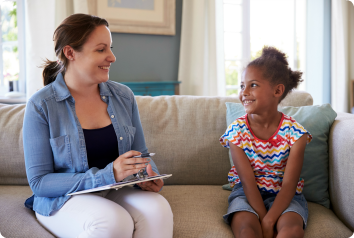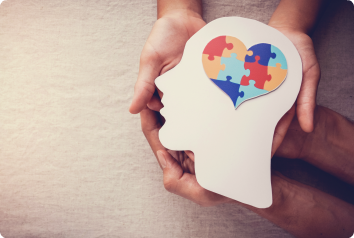This content was originally published by Creating a Family, the national infertility education and support nonprofit. View the original post.
 Families usually experience great joy as they welcome newly adopted or foster children into their lives. When a child comes home, parents might start counseling right away, or the need may not arise until a later time, such as adolescence. Identifying the right adoption or foster therapist for your child can be challenging, especially if a parent is not familiar with the counseling field.
Families usually experience great joy as they welcome newly adopted or foster children into their lives. When a child comes home, parents might start counseling right away, or the need may not arise until a later time, such as adolescence. Identifying the right adoption or foster therapist for your child can be challenging, especially if a parent is not familiar with the counseling field.
This guest post from Carol Lozier, LCSW, gives parents direction for selecting an adoption or foster therapist for their child. There are many factors for each family to consider, from insurance and office location to the therapist’s degree and training. Any reputable therapist should be happy to answer questions about themselves and their practice.
Questions to ask a prospective therapist
Do you have a masters’ degree (or greater) in a counseling-related field? Counseling-related areas include psychology, social work, psychiatry, and marriage and family therapy.
Do you have a license to practice independently? Each state and degree have different requirements, but a license indicates the therapist passed state boards showing competency in their degree.
When did you finish your counseling degree? The therapist should have completed their degree more than five years ago. Of course, more experience is desirable.
Do you take my insurance? If the therapist is in-network with your insurance, call the company to request benefit information and authorization (if needed). If the therapist is out-of-network, call the company to determine your benefits. You will want to ask about your deductible, co-pays, co-insurance, and the requirement for authorization.
How many years have you worked with foster and adopted children? A competent counselor will have at least two to three years of expertise in the area of foster care or adoptions. And ideally, 30% to 50% of the therapist’s practice should be with foster or adopted children.
What is the location of your practice? Ask about the site as it can make a difference in your choice.
As the parent, will I stay in the room during my child’s sessions? Typically, an adoption therapist keeps parents in the therapy session with the child. The parent remains in the room for information and attachment opportunities.
How were you trained to work in this area? There are many acceptable treatment models, including Theraplay, Narrative therapy, EMDR (Eye Movement Desensitization and Reprocessing), and Dyadic Developmental therapy. Research whichever model the therapist uses so that you are familiar with the process and know what to expect in sessions.
What additional training do you have that augments your chosen model? It is suggested that therapists have additional training in individual therapy with children and adults, family therapy, child development, trauma work, and cognitive and behavior therapy.
(If you suspect that the child has been sexually abused, or that information is documented in his files, the highlighted link offers additional questions you should ask a prospective therapist.)
Will we meet alone with you in the first session, or do we bring our child? A general rule of thumb is parents attend the first session alone unless the child is an adolescent, then the child may accompany the parents.
 Questions to ask once you’ve visited the therapist
Questions to ask once you’ve visited the therapist
These last questions are for the family to ask themselves after the first visit or two with the therapist. You want to be able to answer “Yes” to both of these questions, as the therapeutic relationship is interactive and built on trust and respect.
- Do we feel this therapist is a positive and comfortable fit for our family?
- Is the counselor open to our questions about the therapy process?
Creating a Family has a wealth of other resources from Ms. Lozier, including this radio show on Helping Children Heal from Past Trauma and Loss. She has written many books, including one of our favorites, The Adoptive & Foster Parent Guide: How to Heal Your Child’s Trauma and Loss (Volume 1).*
Originally published in 2012, updated in 2020 by Carol Lozier on Creating a Family.


